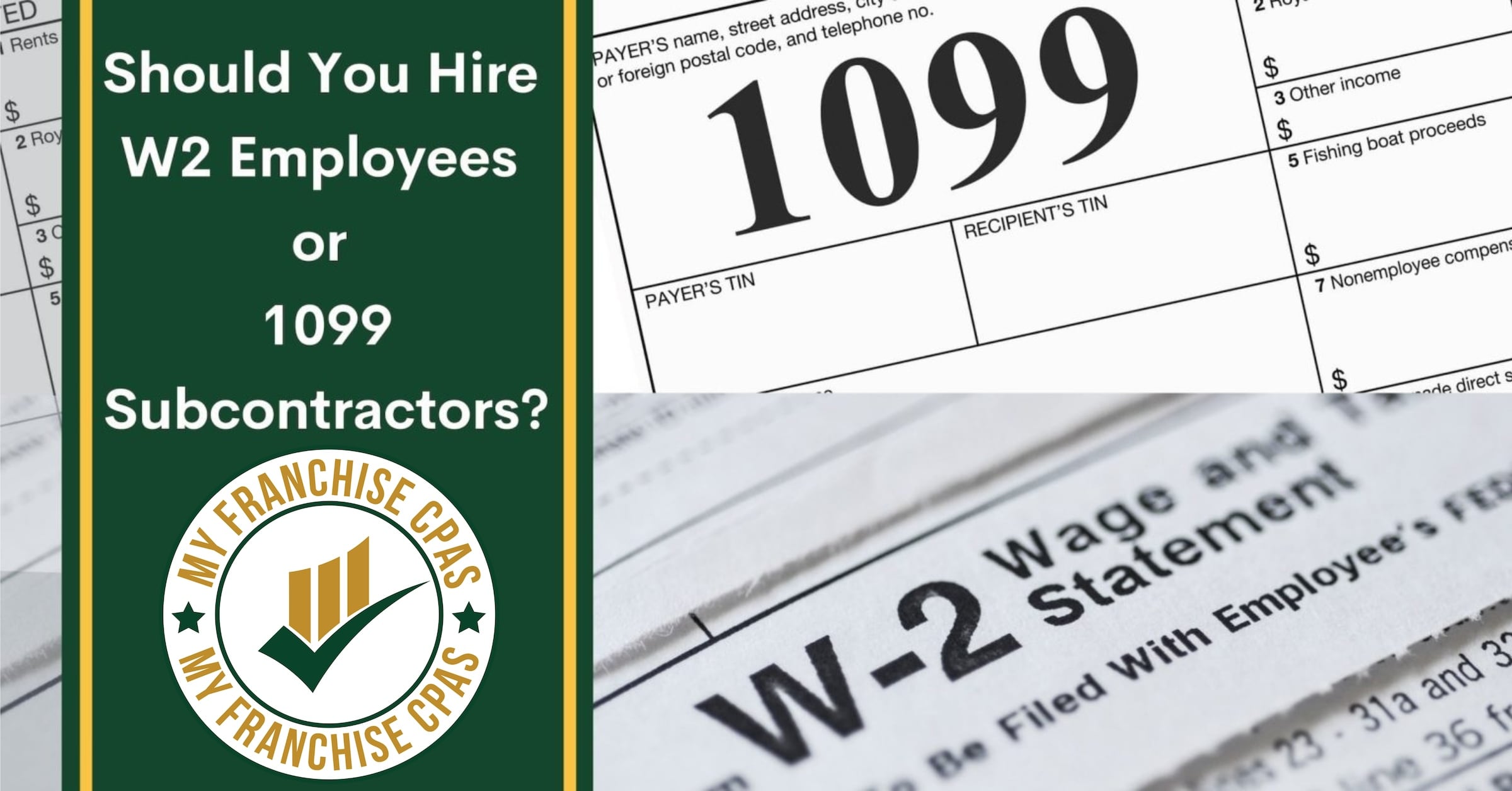Should You Hire W2 Employees or 1099 Subcontractors?
When running a business, every entrepreneur must decide whether to hire employees. Once your business grows to the point where hired help is necessary, the choice becomes whether to hire W2 employees or 1099 independent contractors.
This decision is important because these types of employees operate very differently, and each set of employees has different legal conditions under which they must work. If you are hiring W2 employees, one additional point to consider is how to retain your staff – there are tax credits available for this purpose.
What is the Difference Between W2 Employees and 1099 Contractors?
W2 employees are full, or part time employees contracted to work for your company. These employees are the more traditional types that most large businesses hire. A 1099 independent contractor, however, is a freelance employee that is assigned a very specific task, works on a more independent basis, and can walk away from your company at any time.
There are many different approaches to hiring staff, and ultimately, it comes down to each business owner to decide which type of employee is right for their business.
If you run a high-tech software company and do not want your staff to work for competitors, or share company secrets, a W2 employee would be the better choice. If you run a website and need someone to design a website for you, a freelancer is the route that most of us would take for that particular project. It depends on the needs of the company, which can change over time.
There are also legal implications to consider. Hiring freelancers is often much less complex, and much less expensive, as you do not have to withhold taxes from their pay, provide benefits, or have an HR department that is actively managing staff.
What are the Pros and Cons Between W2 and 1099 Employees?
Of course, there are pros and cons to each type of employee.
A 1099 independent contractor is perfect for a business who has short-term, specific needs. The upsides to this are that your business does not need to provide this employee with benefits or withhold taxes for their work. There is also a lesser need for a Human Resources Department, meant to manage staff. This choice is also inexpensive, compared to a traditional W2 employee.
However, hiring a 1099 gives your business less security. Contractors can leave your company at any moment – they owe you no loyalty. Your business will have no way to stop a 1099 from sharing information with competitors to leverage a better job.
Next, W2 employees. If 1099s are so much cheaper and less complex, why wouldn’t every business hire contractors exclusively? There are many advantages of hiring a more traditional staff made of W2 employees. With this type of staff, employees can create a relationship with businesses. They can be promoted into management roles, as your business needs them. These types of employees can earn a business tax benefit, such as an Employee Retention tax credit.
The downside to W2 employees is, of course, the cost of hiring this type of staff.
How to Choose Which type of Employee to Hire
There are three Common Law Rules that can be used to determine the best fit for any company’s hiring needs. First, consider the behavioral needs of your staff. Do you need to have control over how and when your staff works? Do you need someone in management? For needs such as these, a W2 employee is best suited to your needs, for behavioral matters.
Next, consider financial needs. Is your business able to pay a regular salary, provide regular hours, and provide benefits for a full-time employee? If not, and the work that needs being done is short term, an independent contractor may be best.
Finally, what type of relationship are you looking for in an employee? Do you need to hire someone for some short-term projects? Do you need someone who can grow with your company?
Using the pros and cons listed above, and determining the needs of your company, the decision of whether a W2 or a 1099 employee is best.
Conclusion
When your business reaches a stage where it needs staff – congratulations! This is a huge step in the scope of your business. There are always pros and cons to every business decision – deciding on which type of employee to hire is no exception.
While it may seem daunting, this decision can be made when analyzing the needs of your business, the financial situation of your business, and the type of work needed to be done. It’s important to also keep in mind the legal implications that come with each type of employee. This guide can be used to help any business owner make this decision much easier.
If we’ve already helped you we would love a Google review!







